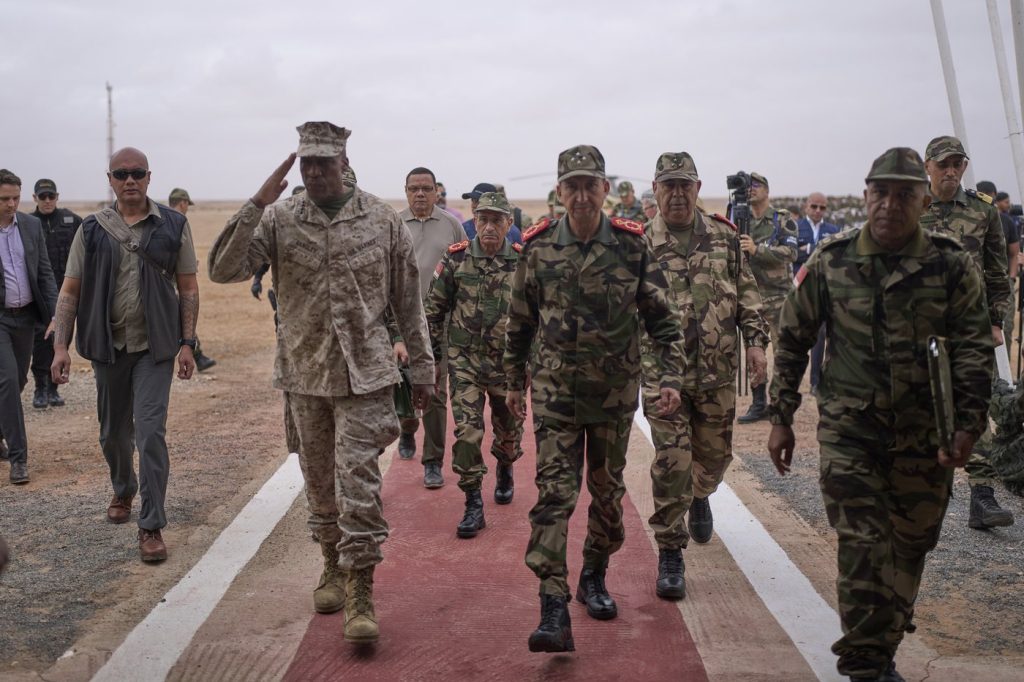TAN TAN, Morocco (AP) – The U.S. military is adjusting its approach in Africa, moving away from its previous emphasis on good governance and addressing the root causes of insurgencies. Instead, the focus has shifted towards encouraging its fragile allies on the continent to take greater responsibility for their own security needs. This shift was evident during the African Lion, the U.S.'s largest annual joint training exercise, where Gen. Michael Langley, the top military official in Africa, stated that "we need to get our partners to the level of independent operations."
During the four-week exercise, troops from over 40 nations engaged in various military maneuvers to prepare for multiple threat scenarios, utilizing drones, close-quarters combat simulations, and satellite-guided rocket launches. While the exercise mirrored past editions, the discourse surrounding U.S. military involvement has notably shifted from promoting a holistic "whole of government" strategy—one that integrates defense, diplomacy, and development—to prioritizing capacity-building among allies.
Gen. Langley highlighted the need for "burden sharing" on the last day of the exercise, emphasizing a new defense posture that aligns with efforts to create a "leaner, more lethal force" in light of America's strategic priorities. This includes providing support to partners capable of managing their own security operations. The U.S. has invested heavily in security assistance in Africa, with around 6,500 personnel stationed on the continent, but the effectiveness of these efforts is being called into question as insurgencies gain momentum and local militaries remain under-resourced.
In recent months, the U.S. military's stance has evolved despite the proliferation of armed groups like al-Qaida and the Islamic State in Africa, which are expanding their influence across the region. According to senior defense officials, Africa has become a focal point for both organizations, with the Islamic State shifting command and control operations to the continent. As violence escalates, fears are growing that the ramifications could extend beyond localized hotspots.
The conditions in regions like the Sahel and Somalia are worrisome, as these areas have become fertile ground for terrorist activities. The Institute for Economics and Peace's recent statistics reveal that over half of the world’s terrorism-related deaths occurred in West Africa’s Sahel in 2024, while Somalia also reported significant levels of violence. Despite increased military engagement, such as airstrikes in Somalia targeting al-Shabab and IS operatives, the capacity of local forces, like the Somali National Army, remains limited.
This evolving U.S. strategy appears to risk weakening its resolve to counter the growing insurgency threat, a concern echoed by analysts. Beverly Ochieng, a security consultant specializing in the Sahel, pointed out the challenges faced by local militaries, which often lack the necessary air support and resources to effectively respond to militant threats and monitor movements in difficult terrains.
Overall, while the U.S. military is adjusting its posture in Africa to emphasize self-reliance among partner nations, the continuing expansion of insurgent groups poses significant challenges. The lack of robust local capacities coupled with diminishing Western influence raises questions about the effectiveness of this strategy in ensuring stability and countering extremism. As the African landscape changes, key players like Russia and China also increasingly assert their presence, further complicating the dynamic of military and security partnerships on the continent.










